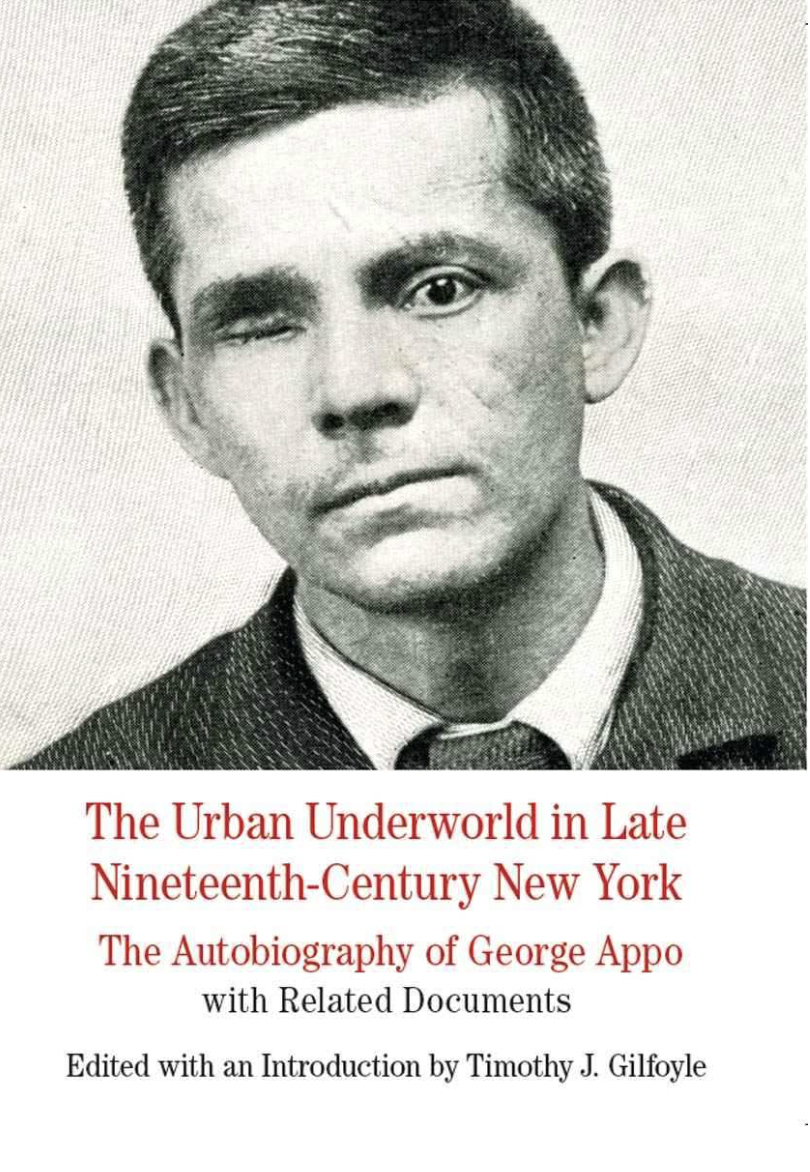
WHAT WE'RE READING: This month we are honored to feature an autobiography "The Urban Underworld in Late Nineteenth-Century New York: The Autobiography of George Appo," by former Sing Sing incarcerated individual, George Appo, and edited by Timothy J. Gilfoyle. The book follows the first-hand account of Appo, a pickpocket and con man, who spent his early years in various penitentiaries and prisons in New York. He recalls his time in Sing Sing Prison, providing insight into corruption, corporal punishment, and incarceration.
Appo, an orphaned Chinese American, lived in the Five Points neighborhood of New York City. His upbringing taught him to do whatever was necessary to survive. At the age of 15, Appo was caught pickpocketing, charged, and sentenced to time on the school ship called "Mercury." Throughout his life, Appo was in and out of different prisons until the early 20th century.
His account of Sing Sing gives an insider perspective on prison life during the late 1800s and early 1900s. He describes a system of informal entitlements created by prison guards: the incarcerated people could pay and bribe guards to receive newspapers, tobacco, and even could be exempt from hard labor. Appo also discusses another administrative system in which, to cut costs, prison administrators would assign office work to inmates. This allowed them to manipulate records and change release dates for other inmates.
Through his description of corruption and corporal punishment, Appo raises the question: What is the purpose of prisons? Is it to reform incarcerated individuals? Is it to separate them from the general public? Is it to take advantage of cheap labor?
Read Appo's autobiography here: https://www.amazon.com/Urban-Underworld-Late-Nineteenth-Century-York-ebook/dp/B07L9F65LJ/ref=sr_1_1?crid=2VSHTTR4UEO0F&keywords=george+appo&qid=1659373572&sprefix=george+appo%2Caps%2C63&sr=8-1
Appo, an orphaned Chinese American, lived in the Five Points neighborhood of New York City. His upbringing taught him to do whatever was necessary to survive. At the age of 15, Appo was caught pickpocketing, charged, and sentenced to time on the school ship called "Mercury." Throughout his life, Appo was in and out of different prisons until the early 20th century.
His account of Sing Sing gives an insider perspective on prison life during the late 1800s and early 1900s. He describes a system of informal entitlements created by prison guards: the incarcerated people could pay and bribe guards to receive newspapers, tobacco, and even could be exempt from hard labor. Appo also discusses another administrative system in which, to cut costs, prison administrators would assign office work to inmates. This allowed them to manipulate records and change release dates for other inmates.
Through his description of corruption and corporal punishment, Appo raises the question: What is the purpose of prisons? Is it to reform incarcerated individuals? Is it to separate them from the general public? Is it to take advantage of cheap labor?
Read Appo's autobiography here: https://www.amazon.com/Urban-Underworld-Late-Nineteenth-Century-York-ebook/dp/B07L9F65LJ/ref=sr_1_1?crid=2VSHTTR4UEO0F&keywords=george+appo&qid=1659373572&sprefix=george+appo%2Caps%2C63&sr=8-1

 RSS Feed
RSS Feed